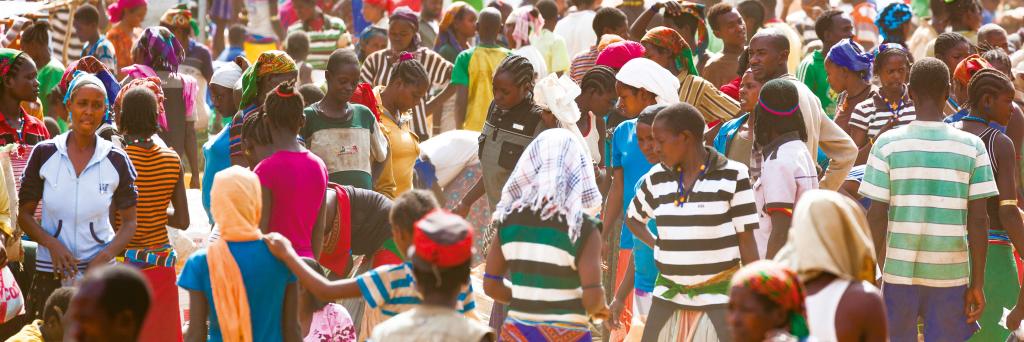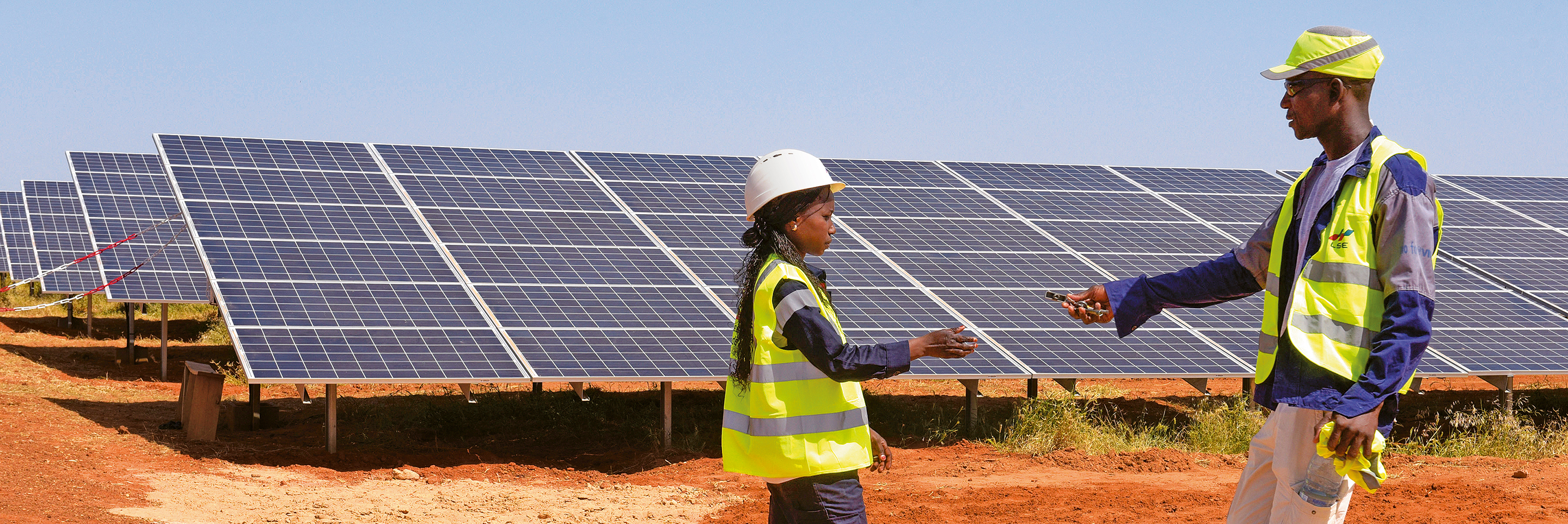The growing currency of the “Africa rising” discourse over the last two decades is accompanied by a debate on the place of Africa in international relations as well as how the continent contributes to the making of a world of multiples. The narrative first appeared following what was termed at the beginning of the 21st century by Alice Amsden the “rise of the rest” ¹ – i.e., the achievement by certain developing states of high levels of economic growth and productivity. However, the continued presence of disparities in the distribution of wealth and resources across the globe tends to promote the marginalisation of Africa in a globalised world. In that context, it is important to underline the diversity of socio-economic growth taking place in the region. Besides, demographic projections suggest that by 2050, the sub-Saharan part of the continent will count more than 1.3 billion working-age people. Consequently, it is necessary to take seriously ongoing trends in the region, which is often portrayed without nuance as a blind spot of the world order.
The debate on the role of Africa in global affairs is complex and should be engaged in a multi-layered perspective, as should the analysis of Africa in the discipline of International Relations (IR). The prevailing tension between how experiences from the region inform IR scholarship on the one hand, and the status granted to African agents as second league players in world affairs, on the other, questions the issue of status and hierarchies. A meta-reading of the international system does not capture the contributions of the diverse players and spaces from Africa to the fabric of a pluriversal world. A critical issue at stake is the unequal recognition of epistemes, institutional and social innovations offered by the multiple agents shaping Africa.
If we look only at the European experience of state-building, well described by Charles Tilly as a process mainly structured around war and taxation, how can we make sense of other trajectories – particularly African – characterised by the aggregation of intertwined experiences involving transnational identity communities? For example, how do we value political institutions which pre-existed in the former Empire of Ghana before the British coloniser conquered this West African nation? Does the continued differentiation related to African socio-political peculiarities simply serve to perpetuate double standards and asymmetries in knowledge production?
The prevailing context of epistemic hierarchies restrains the prolific contributions that Africa and more broadly the Global South can offer to the IR discipline, not just as a place to collect raw materials, but also as a space where innovative contributions “It is important to underline the diversity of socio-economic growth taking place in the region.” can emerge. A critical move towards better capturing ongoing trends on a global scale is to provide equal recognition to Africa’s experiences as relevant contributions to the making of our pluriversal world. This necessitates broadening our schemes for thinking and apprehending how the global arena works. For instance, how do we better take into consideration relational ontologies promoted by the Pan-African doctrine as the foundation of the continent’s engagement in world affairs? As advocated by Kwame Nkrumah and his Pan-African peers in 1960s, taking into consideration social morphologies linked to particular spaces is an important way to adopt a balanced perspective that encompasses multiple worldviews. Doing so prevents a hierarchical understanding of the international system, beyond a static and binary centre-periphery configuration.
A close look at African states’ engagement in world affairs through the African Union sheds light on how playing the regional game becomes a privileged strategy for promoting and asserting Africa’s views on global issues. In 2018, the African Union, based on the Pan-African doctrine, recognised the African diaspora as the sixth subregion, which is a unique institutional innovation for promoting African regionalism. In the same vein, the 9th Pan-African Congress, to be held in Lomé in late October 2024, will focus on the theme “Renewal of Pan-Africanism and Africa’s Role in the Reform of Multilateral Institutions: Mobilising Resources and Reinventing Ourselves for Action”.
The decision in September 2023 to make the African Union a permanent member of the G20 is a paradigmatic example of the growing recognition of Africa as a regional player. Promoting the Pan-African doctrine of “Try Africa first” is grounded in shared experiences and is driven by a continual search for a common denominator. It sheds a particular light on the vivacity of the African regionalism, and consequently gives voice to a certain global vision of our common future, that we should listen to more. Ultimately, it is a call to better value the multifaceted configurations and views Africa offers in the making of a pluriversal and inclusive world.
_______
¹ Alice H. Amsden, The Rise of “The Rest”: Challenges to the West from Late-Industrializing Economies (Oxford University Press, 2001).
This article was published in Globe #33, the Graduate Institute review.





